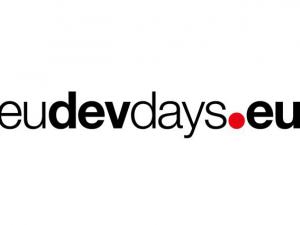UNEP at the European Development Days 2015 (EDD15)
Discussion details

Organized by the European Commission, the European Development Days (EDD) is Europe’s leading forum on development and international cooperation showcasing the ways in which the European Union is engaged in eradicating poverty, promoting sustainability and justice. This year’s agenda includes over 130 sessions on 12 topics in line with the EYD motto: 'our world, our dignity, our future'.
Each year, EDD attracts about 7 000 participants from over 140 countries, representing 1 200 organisations from the field of development cooperation, human rights and humanitarian aid. On this occasion, the United Nations Environment Programme will lead four lab sessions and have two information stands on related projects. Moreover, on the second day of the forum, UN Under-Secretary-General and Executive Director of the UN Environment Programme (UNEP), Achim Steiner will be intervening at a high-level panel session led by the European Parliament.
3 June 12.45-14.00
Multi-stakeholder partnerships for energy efficiency.
Energy efficiency (EE) can greatly reduce the threat of severe climate change, improve our environment, and save a lot of money. Targeted EE measures could deliver close to 50 % of the emissions reductions required to limit global warming to 2°C by 2020. However, to optimize EE, a systems approach needs to be prioritized which looks at efficiency policies and measures across all sectors as well as different levels of governance. This session will discuss lessons learned and best practices to double the rate of improvement in EE by 2030.
3 June 14.30 – 15.45
Fiscal Policies for an Inclusive Green Economy: Lessons Learnt from Africa
Among the policy options available to achieve sustainable development, fiscal policy stands out as an effective tool because it affects pricing. Several measures have been taken, from fossil fuel subsidy reform and feed-in tariffs, to fuel taxes and charges on water pollution and more with notable results. Key lessons have therefore emerged from these country experiences on how to overcome obstacles for an inclusive green economy.
4 June 9 .45 – 11.15
How can development cooperation effectively fight corruption and promote good governance?
UNEP participant: Achim Steiner, UN Under Secretary-General and UNEP Executive Director
4 June 9.00-10.15 + infostand
Financing the SWITCH to Greens SMEs across Asia, Africa and the Mediterranean.
Small and Medium-sized Enterprises (SMEs) are the backbone of our economies and their development is essential for sustainable development and economic growth. As engines of growth for rural and urban areas, SMEs generate income and economic empowerment for producers and consumers everywhere. In line with the proposed SDG12 on SCP, SMEs are a key catalyst for the SWITCH to SCP to really happen in communities everywhere, given their central role in providing jobs, income and opportunities for social mobility to even the poorest households.
4 June 16.00 – 17.15 + infostand
The Economics of Ecosystems & Biodiversity for Agriculture and Food (TEEBAF).
Agricultural practices, the process of food production, its distribution and consumption patterns have positive & negative impacts on ecosystems. TEEBAgFood study is designed to provide a comprehensive economic evaluation of the ‘ecoagri-food systems’ complex and demonstrate that the economic environment is distorted by significant externalities, both negative and positive, and a lack of awareness of dependency on natural capital.
For more information on EDD, click here.
Log in with your EU Login account to post or comment on the platform.